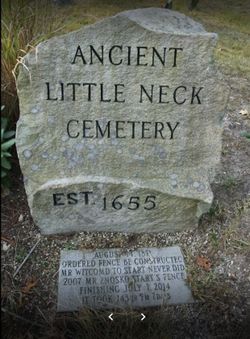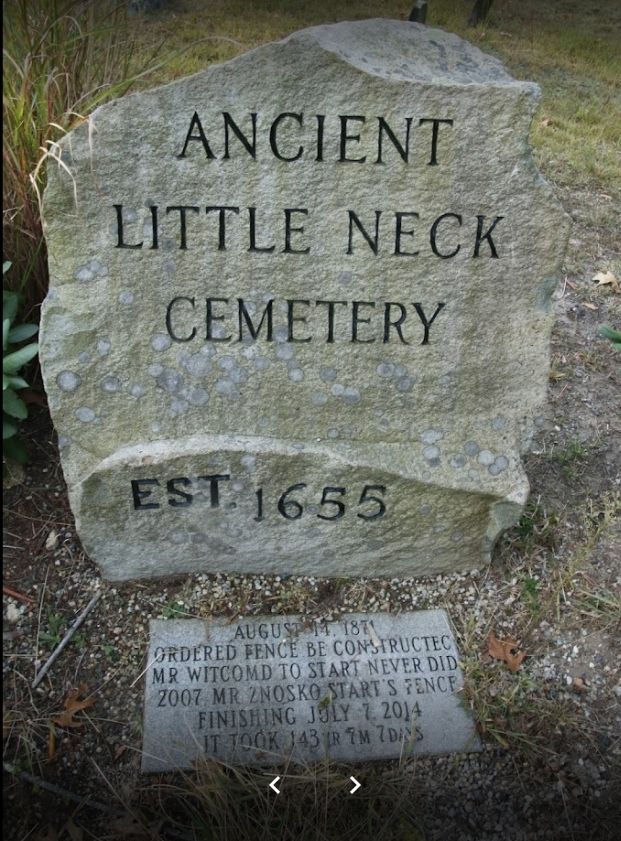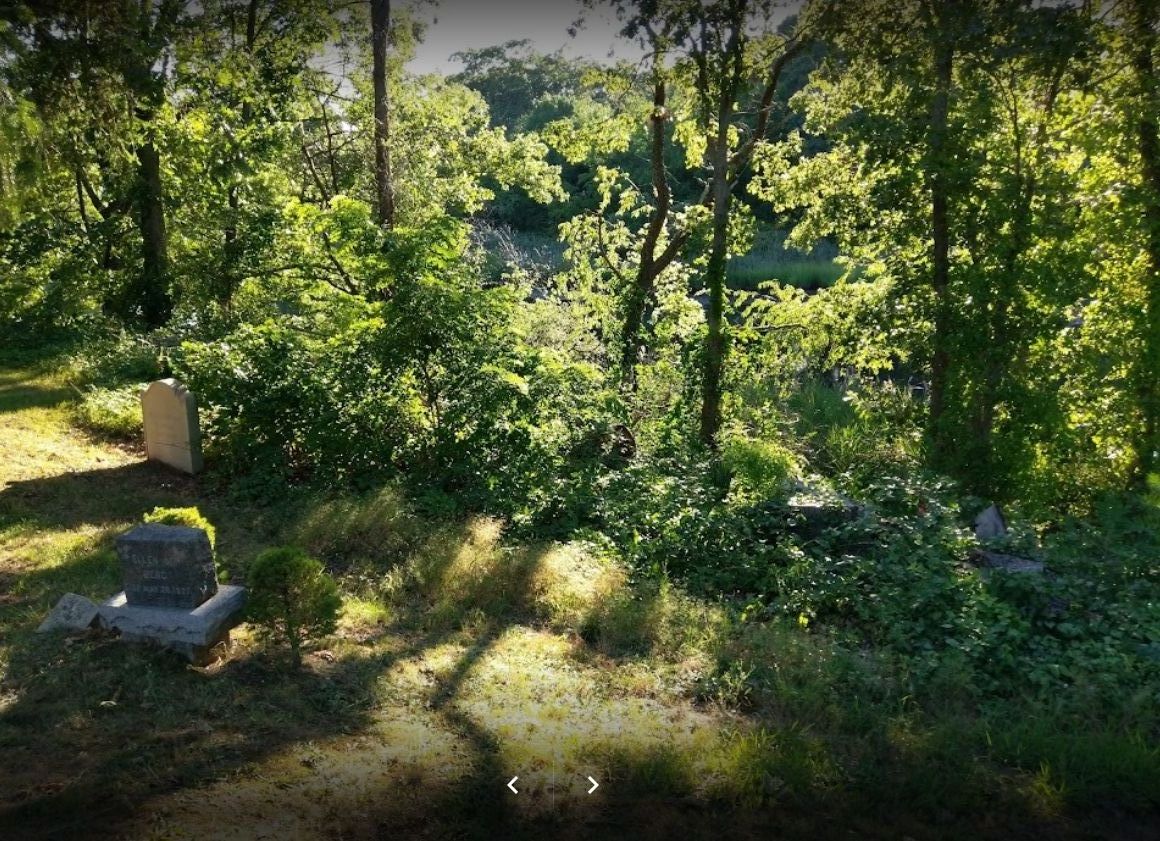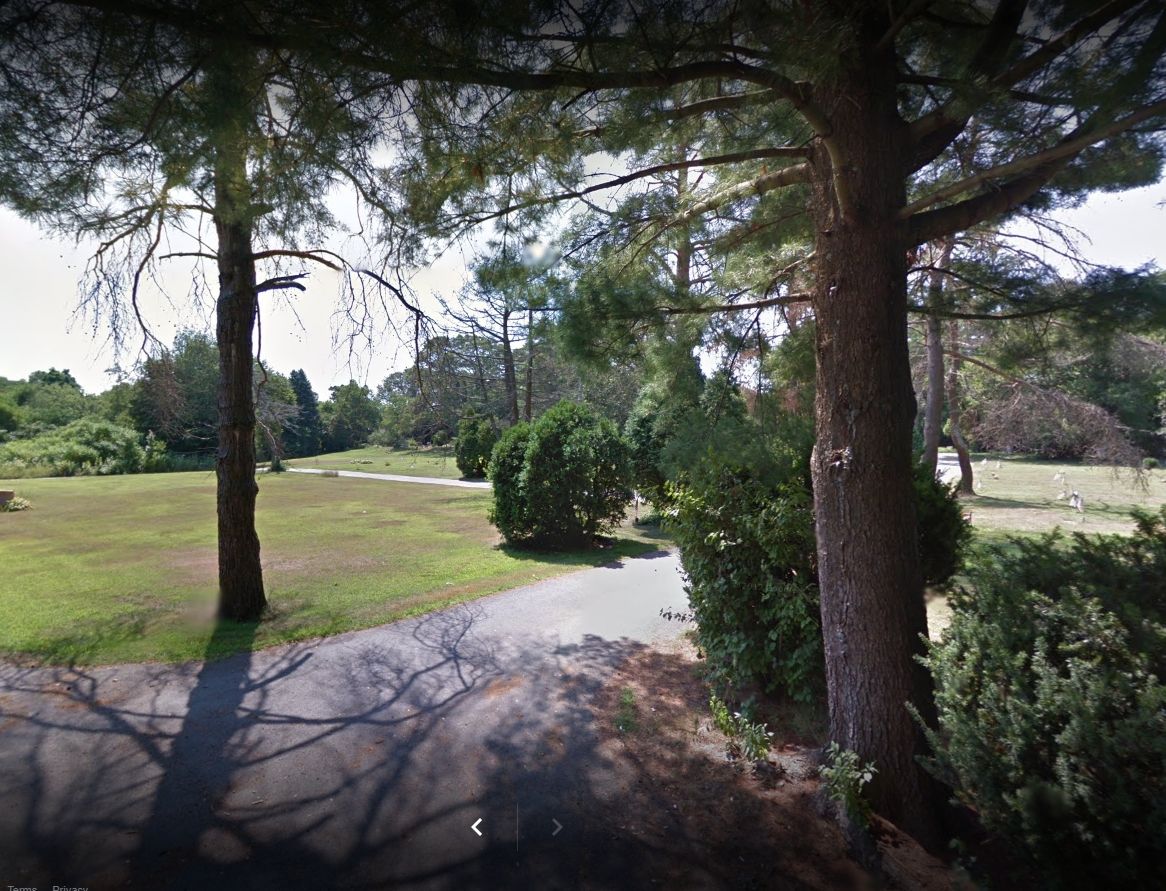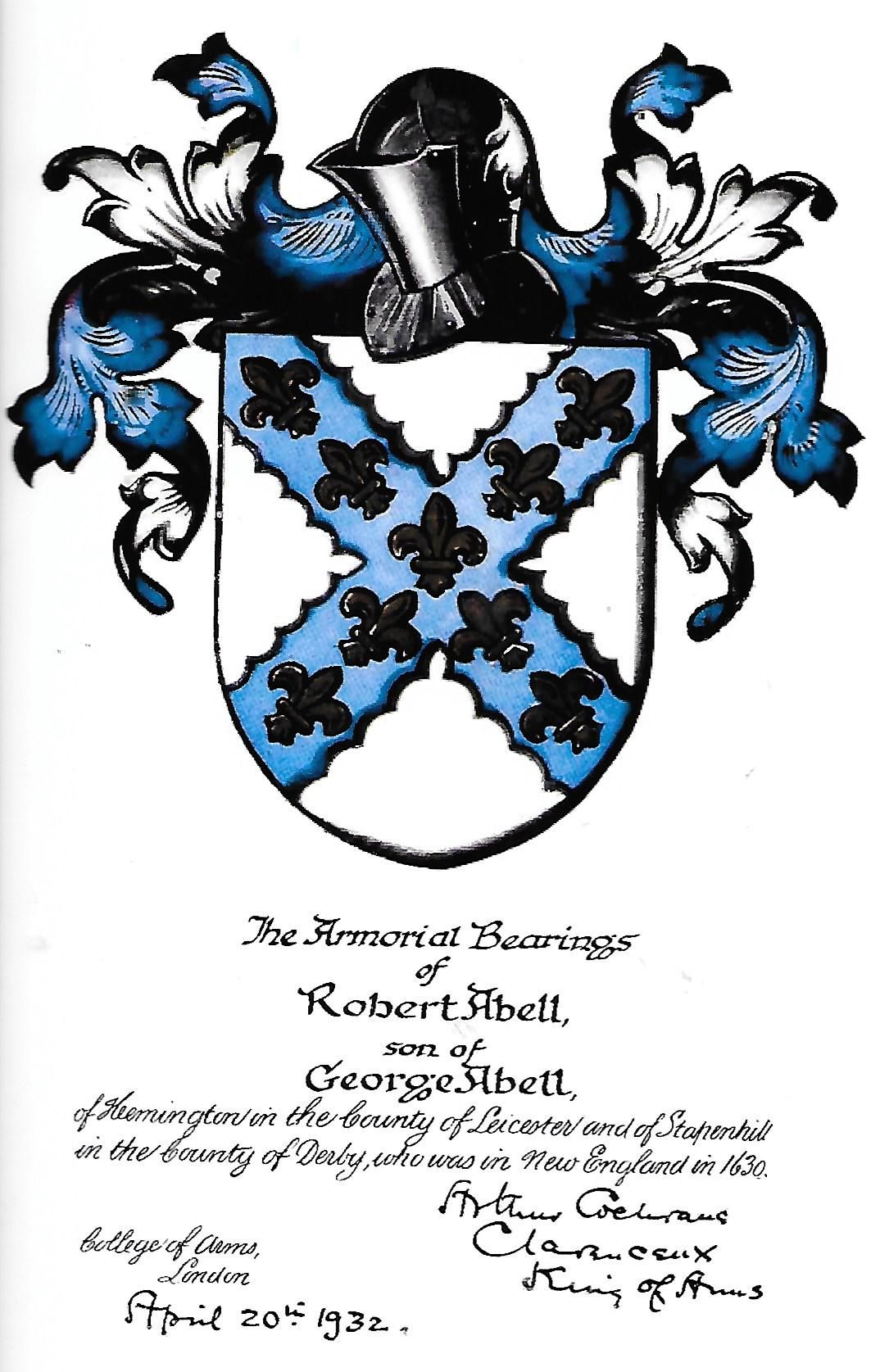An 1nnkeeper who came to Massachusetts Bay from London in 1630. First settled somewhere in the Bay. Moved to Weymouth MA by 1639; moved to Rehoboth MA in 1643. Died in Rehoboth 20 June 1663.
Married Joanna _____. The given name of Robert Abell's wife is first seen after his death, during the probate of his estate; there is no indication that Robert had any other wife, and his sons Preserved & Caleb named daughters Joanna, so Robert was probably married to Joanna by 1639. She married second at Rehoboth 4 June 1667 William Hyde of "New Norwich." She removed to Norwich with her new husband, and outlived him as well.
Source Anderson's Winthrop Fleet.
Royal Descents of 600 Immigrants by Gary Boyd Roberts c2004
page 312, 13 generations from Edward I of England
Because of his thoroughly documented royal pedigree, Robert Abell is considered a "gateway ancestor" by a number of heritage organizations, including the Winthrop Society, Order of the Crown of Charlemagne of the United States of America, Order of Americans of Armorial Ancestry, and the National Society Magna Charta Dames and Barons. This means that any individual who can prove that they are directly descended from Robert Abell has met one of the requirements for admittance into these organizations.
The litany of Abell's direct ancestors includes Charlemagne, Alfred the Great, Malcolm of Scotland, William the Conqueror, Henry II of England and Edward I of England. As well as being descended from the king who signed Magna Carta, John of England (1166-1216), Abell is also descended from 12 of the 25 "surety barons" whose charge it was to enforce the terms of this seminal social contract, i.e., William d'Albini, Roger Bigod, Hugh Bigod, Henry de Bohun, Richard de Clare, Gilbert de Clare, John de Lacie, William Malet, William de Mowbray, Saire de Quincey, Robert de Roos and Robert de Vere.
==================================
RA was among the early settlers of the Massachusetts Bay Colony and the first person with his surname to emigrate from England to the American colonies. He traveled from his home to New England in 1630 as part of the first wave of a mass exodus of Puritans called the Great Migration.
This initial expedition was known as the Winthrop Fleet, which consisted of 11 ships carrying around 700 immigrants. Robert Abell was "related to the Cotton family and probably emigrated under influence of Rev. John Cotton [1585–1652] or Rev. Arthur Hildersham [1563-1632] of Ashby-de-la-Zouch, who lived a few miles from the home of Abell. Derby, the home of the Cotton family, was only five miles distant."
According to Charles Henry Pope, author of Pioneers of Massachusetts, "all who came after 1650 found Massachusetts a reality, a single state, practically, although under two fraternal governments; all who came before that date helped essentially to make it."
Robert was the second son of George Abell (1561-1630) and Frances Cotton (b. abt. 1573-d. by 1646). On his mother's side, he was descended from a long line of English, Norman and French aristocrats and royalty.
His maternal grandfather, "Rt. Hon. Sir George Cotton," was "Vice-Chamberlain of the Household to the Prince of Wales, (later King Edward VI) . . . a Privy Counsellor . . . [and] Esquire of the Body to King Henry VIII."[10] Henry knighted him before or in 1542.
Robert's father, George Abell, came from a family whose English progenitor is believed to have arrived as part of the Norman Invasion of 1066. At the age of 17, George enrolled in Oxford University's Brasenose College (8 December 1578). By November of 1580, he had become a barrister and a member of the Inner Temple. Before June 1630, he arranged an apprenticeship in London for his son, but Robert decided to try his luck in the New World, instead. This was a move that his father disapproved of, but, nevertheless, financed.
According to Abstract of Graves of Revolutionary Patriots; Volume: 1; Serial: 11912; Volume: 4 burial is in Old Rumford Cemetery.∼Born in England in 1604, Robert emigrated to America.
Robert lived in Rehoboth, in what was then Plymouth Colony in Colonial America. His occupation was Tavern Keeper.
An 1nnkeeper who came to Massachusetts Bay from London in 1630. First settled somewhere in the Bay. Moved to Weymouth MA by 1639; moved to Rehoboth MA in 1643. Died in Rehoboth 20 June 1663.
Married Joanna _____. The given name of Robert Abell's wife is first seen after his death, during the probate of his estate; there is no indication that Robert had any other wife, and his sons Preserved & Caleb named daughters Joanna, so Robert was probably married to Joanna by 1639. She married second at Rehoboth 4 June 1667 William Hyde of "New Norwich." She removed to Norwich with her new husband, and outlived him as well.
Source Anderson's Winthrop Fleet.
Royal Descents of 600 Immigrants by Gary Boyd Roberts c2004
page 312, 13 generations from Edward I of England
Because of his thoroughly documented royal pedigree, Robert Abell is considered a "gateway ancestor" by a number of heritage organizations, including the Winthrop Society, Order of the Crown of Charlemagne of the United States of America, Order of Americans of Armorial Ancestry, and the National Society Magna Charta Dames and Barons. This means that any individual who can prove that they are directly descended from Robert Abell has met one of the requirements for admittance into these organizations.
The litany of Abell's direct ancestors includes Charlemagne, Alfred the Great, Malcolm of Scotland, William the Conqueror, Henry II of England and Edward I of England. As well as being descended from the king who signed Magna Carta, John of England (1166-1216), Abell is also descended from 12 of the 25 "surety barons" whose charge it was to enforce the terms of this seminal social contract, i.e., William d'Albini, Roger Bigod, Hugh Bigod, Henry de Bohun, Richard de Clare, Gilbert de Clare, John de Lacie, William Malet, William de Mowbray, Saire de Quincey, Robert de Roos and Robert de Vere.
==================================
RA was among the early settlers of the Massachusetts Bay Colony and the first person with his surname to emigrate from England to the American colonies. He traveled from his home to New England in 1630 as part of the first wave of a mass exodus of Puritans called the Great Migration.
This initial expedition was known as the Winthrop Fleet, which consisted of 11 ships carrying around 700 immigrants. Robert Abell was "related to the Cotton family and probably emigrated under influence of Rev. John Cotton [1585–1652] or Rev. Arthur Hildersham [1563-1632] of Ashby-de-la-Zouch, who lived a few miles from the home of Abell. Derby, the home of the Cotton family, was only five miles distant."
According to Charles Henry Pope, author of Pioneers of Massachusetts, "all who came after 1650 found Massachusetts a reality, a single state, practically, although under two fraternal governments; all who came before that date helped essentially to make it."
Robert was the second son of George Abell (1561-1630) and Frances Cotton (b. abt. 1573-d. by 1646). On his mother's side, he was descended from a long line of English, Norman and French aristocrats and royalty.
His maternal grandfather, "Rt. Hon. Sir George Cotton," was "Vice-Chamberlain of the Household to the Prince of Wales, (later King Edward VI) . . . a Privy Counsellor . . . [and] Esquire of the Body to King Henry VIII."[10] Henry knighted him before or in 1542.
Robert's father, George Abell, came from a family whose English progenitor is believed to have arrived as part of the Norman Invasion of 1066. At the age of 17, George enrolled in Oxford University's Brasenose College (8 December 1578). By November of 1580, he had become a barrister and a member of the Inner Temple. Before June 1630, he arranged an apprenticeship in London for his son, but Robert decided to try his luck in the New World, instead. This was a move that his father disapproved of, but, nevertheless, financed.
According to Abstract of Graves of Revolutionary Patriots; Volume: 1; Serial: 11912; Volume: 4 burial is in Old Rumford Cemetery.∼Born in England in 1604, Robert emigrated to America.
Robert lived in Rehoboth, in what was then Plymouth Colony in Colonial America. His occupation was Tavern Keeper.
